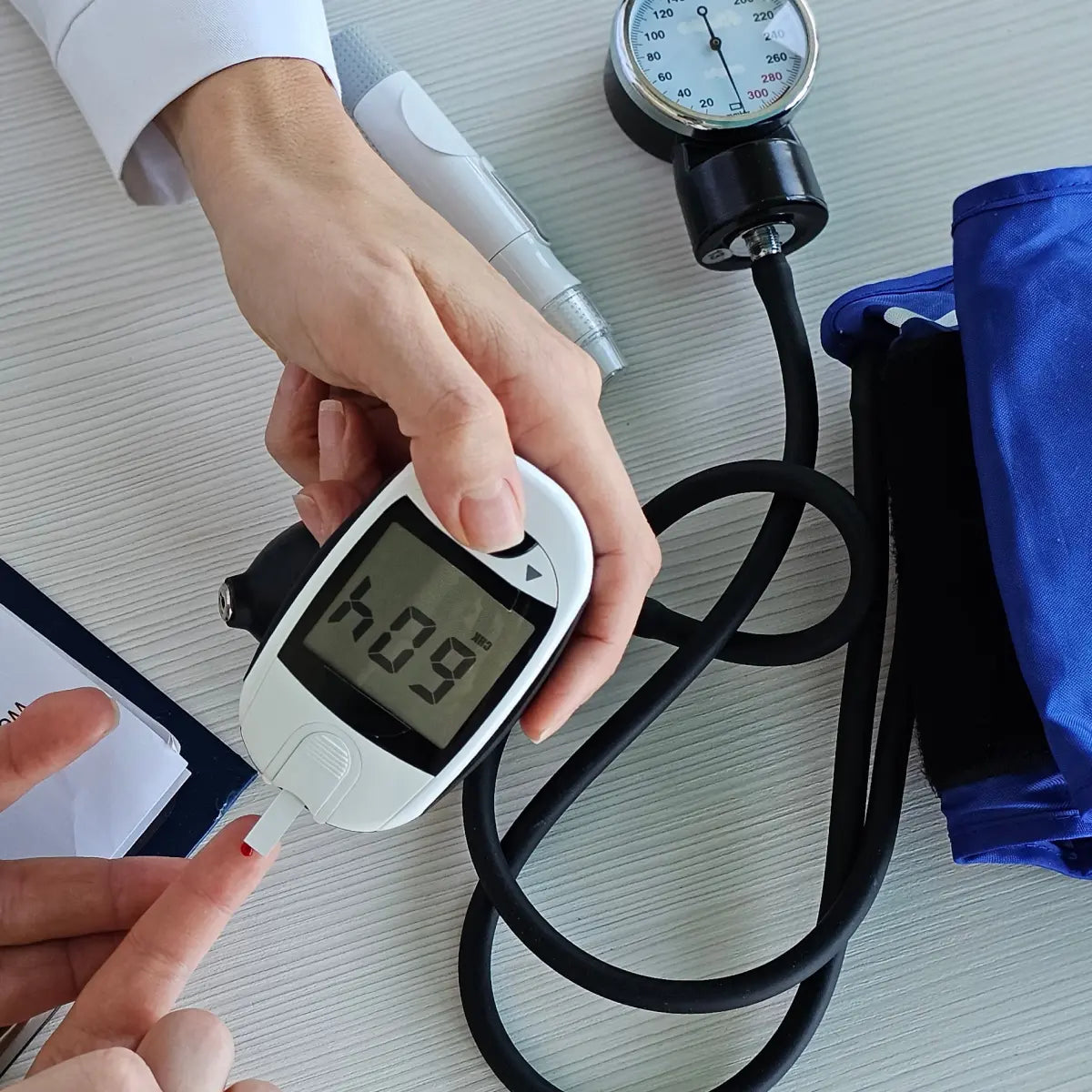
Wellness Guide
Diabetes and hypertension

Diabetes and hypertension: two closely related conditions
Diabetes and hypertension are among the most common chronic diseases worldwide. Their coexistence increases cardiovascular risk: a person with diabetes and hypertension is 2 to 4 times more likely to develop cardiac complications than a diabetic person with normal blood pressure.
Prevention and management are essential, especially if there is a family history.
Factors / Motivations
Genetics
Genetics
Genetic predisposition plays a key role in both diabetes and hypertension. Having first-degree relatives with one of these conditions significantly increases the risk of developing them, especially if associated with unhealthy lifestyles.
Lifestyle
Lifestyle
An unbalanced diet, a sedentary lifestyle, alcohol abuse and smoking are among the main modifiable factors that favor the onset of diabetes and the increase in blood pressure. The accumulation of visceral fat also plays a decisive role.
Body weight
Body weight
Overweight and obesity, especially with visceral fat distribution, are among the main risk factors. They can lead to insulin resistance and increased blood pressure, compromising cardiometabolic health.
Age and stress
Age and stress
As you age, your risk increases, especially after age 45 for type 2 diabetes. Chronic stress can also contribute negatively, affecting blood sugar and blood pressure through activation of the HPA (hypothalamic-pituitary-adrenal) axis.


Improve® PROTEIN
Targeted support for your strength and lightness.
IImprove® Protein is designed for those looking for a complete and digestible protein intake, every day. Thanks to its ingredients, it contributes to the growth, maintenance of muscle mass and energy metabolism. A simple gesture, every day, to nourish your body with balance and awareness.
Suggestions
Balanced diet
A diet rich in fruits and vegetables (at least 5 servings a day), whole grains, legumes, fish, white meats and low-fat dairy products helps improve blood sugar and blood pressure. It is important to limit salt, simple sugars and processed foods, and use extra virgin olive oil as the main source of fat.
Physical exercise
Regular physical activity is essential for preventing and managing diabetes and hypertension. It improves insulin sensitivity, lowers blood pressure, and helps maintain weight. The WHO recommends at least 150-300 minutes of moderate aerobic activity or 75-150 minutes of vigorous aerobic activity per week.
Weight loss
Even a modest reduction in body weight can have a significant impact on blood sugar and blood pressure, especially in the presence of visceral obesity. Reducing abdominal fat helps improve insulin resistance and reduces cardiovascular risk.
Therapeutic adherence
Follow your doctor's prescriptions correctly: well-managed drug therapy is essential to keep blood sugar and blood pressure levels under control, preventing long-term complications. In case of chronicity, adherence becomes a real pillar of prevention.
Stress Management
Chronic stress can worsen the clinical picture by increasing cortisol and adrenaline, hormones that promote hyperglycemia and hypertension. Techniques such as mindfulness, meditation and conscious breathing are valid strategies to improve emotional and physiological management.

Prevention and awareness for lasting health
Adopting a healthy lifestyle is not only a useful choice to reduce the risk of diabetes and hypertension, but it represents a real investment in your long-term well-being. Every small step counts: choosing healthier foods, moving regularly, monitoring your values and listening to your body allows you to act with greater awareness and prevent future complications.
Prevention is the most effective form of treatment.
Health is built every day, with simple but coherent choices.

